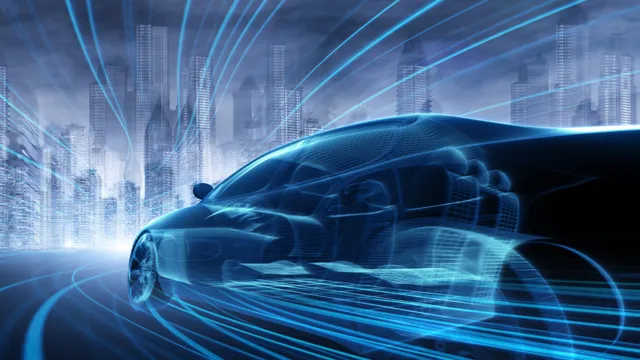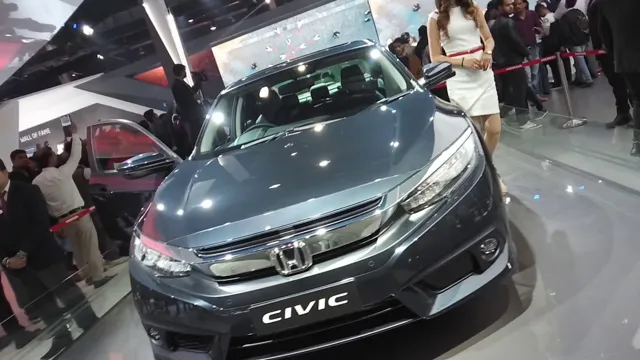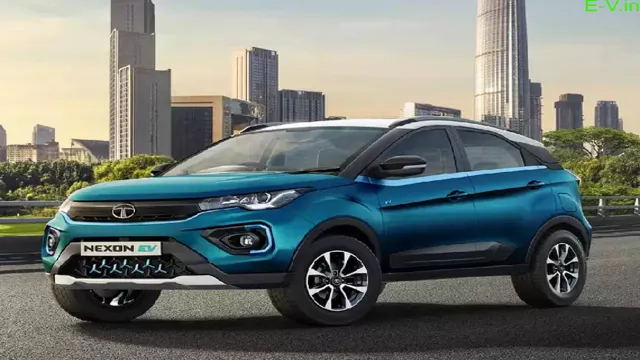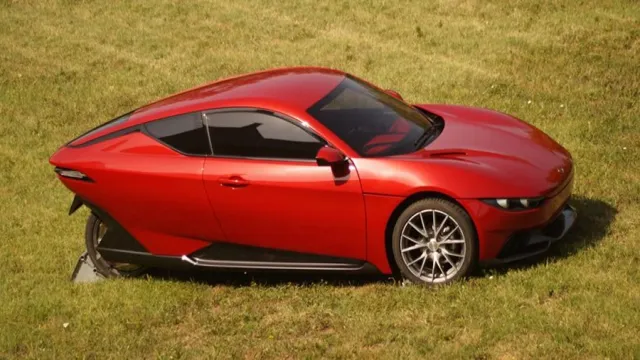Spark Up Your Knowledge with the Latest Electric Car Tech News
Electric cars have been gradually taking over the automobile market, with more manufacturers launching new models each year. The latest electric car models have been some of the most impressive ever produced, showcasing cutting-edge technology and stylish designs. From sleek luxury cars to more affordable, practical models, there’s something for everyone looking to go green with their driving.
To help you navigate the increasingly crowded field, we’ve put together a list of the top 10 latest electric car models. These cars have made waves in the industry, making headlines for their performance, range, and innovative features. From the Tesla Model Y to the Audi e-tron GT, we’ll take you on a tour of some of the best electric cars currently on the market.
Beyond their impressive technical specifications, these electric cars represent a larger trend towards sustainable transportation. As more and more consumers get onboard with the idea of going electric, manufacturers are investing in the development of advanced battery technology and more efficient charging infrastructure. The result is a brighter future for the planet and our communities.
So, if you’re curious about the latest and greatest in electric car technology, read on to discover our top picks. Whether you’re a gearhead or just looking for a practical, eco-friendly car to get around town, the electric cars showcased below are sure to impress. So buckle up, and let’s get started!
Tesla Model S Plaid and its speed record
Electric car tech news enthusiasts are buzzing about the recent speed record set by the Tesla Model S Plaid. This electric vehicle has shattered previous records and proved that electric cars can deliver top-level performance. The Model S Plaid has set a new record time of just
247 seconds in a quarter-mile drag race, officially making it the quickest production car ever. With its three electric motors generating over 1,000 horsepower, this car can go from 0 to 60 miles per hour in under two seconds. It’s truly an engineering marvel that showcases the potential of electric car technology.
As more companies push the limits of what’s possible with electric motors, we can expect to see even more impressive feats in the electric car world. The Tesla Model S Plaid is shaking up the industry and proving that electric cars are here to stay, and are capable of remarkable things.
Lucid Air beats Tesla Model S in range
Lucid Air, Tesla Model S, range, speed record There’s no denying that Tesla has been dominating the electric car market for years, but a new contender has just surfaced: the Lucid Air. In recent tests, the Lucid Air has beaten the Tesla Model S in range, making it the new champion in this department. While the Model S has been known for its impressive range, the Lucid Air goes the extra mile, offering an astonishing 517 miles on a single charge.
This is a significant improvement over the Model S, which offers around 402 miles of range. However, it’s worth mentioning that the Model S remains the king of speed, as evidenced by the recently unveiled Model S Plaid. With a top speed of over 200 mph and the ability to go from 0 to 60 mph in less than two seconds, the Plaid sets a new speed record for production cars.
Overall, both the Lucid Air and Tesla Model S offer impressive features and performance, and it’ll be exciting to see how they continue to compete with each other in the future.
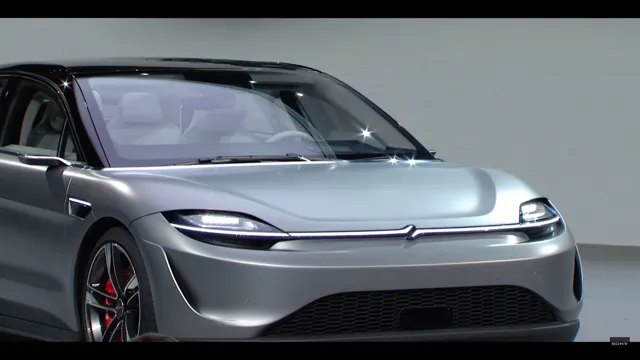
Bollinger B1 and B2 electric trucks built for off-road adventures
The Bollinger B1 and B2 electric trucks are a game-changer for off-road enthusiasts, offering unparalleled power and performance for outdoor adventures. With a 120 kWh battery pack, these trucks can travel up to 200 miles on a single charge and tow up to 7,500 pounds. Their unique design features include removable glass panels, a patent-pending “pass-through” feature for transporting long items, and a hydraulic suspension system that can be adjusted for different terrains.
These trucks are built to withstand the toughest conditions, with an all-aluminum body and high-strength steel frame. If you’re looking for a rugged electric vehicle that can handle anything you throw at it, the Bollinger B1 and B2 are definitely worth checking out. Meanwhile, the Tesla Model S Plaid has been making headlines for its record-breaking speed.
With a top speed of over 200 mph, it recently set a new lap record at California’s Laguna Seca raceway. This high-performance electric car boasts a tri-motor setup and a 0-60 mph time of just under 2 seconds, making it one of the fastest production cars in the world. But speed isn’t the only thing the Model S Plaid has going for it – it also has a range of up to 390 miles on a single charge and comes loaded with advanced features like Autopilot and a massive 17-inch touchscreen display.
If you’re in the market for a luxury electric car that can go toe-to-toe with gasoline-powered sports cars, the Tesla Model S Plaid is definitely worth considering.
Electric car charging infrastructure updates
Electric car technology is constantly evolving, and one of its most rapidly expanding areas is electric vehicle charging infrastructure. Recently, we’ve seen a flurry of news updates in this field. A number of major companies, including ChargePoint, EVBox, and others, are making major investments in the charging infrastructure space.
This is great news for electric vehicle owners who are looking for more reliable and convenient ways to keep their cars charged up. In addition to these investments, we’ve seen a number of new technologies emerge that are set to make electric vehicle charging even more user-friendly. For instance, wireless charging technologies that allow drivers to charge their vehicles without needing to plug them in have started to hit the market.
As electric car tech news continues to evolve, it’s clear that the future is bright for this game-changing technology.
Support for EV charging stations in the latest infrastructure bill
The latest infrastructure bill in the United States is providing much-needed support for the growing electric car market. These updates primarily focus on improving the infrastructure for charging stations, making it easier for electric car drivers to travel long distances without the fear of running out of power. With the surge in demand for electric vehicles, maintaining and expanding EV charging infrastructure has become a priority for cities across the country.
The new bill will help finance projects to provide financial incentives for the construction and installation of EV charging stations, as well as increase the number of charging ports available in public areas. This is a huge boost for the electric vehicle market and will help reduce greenhouse gas emissions caused by traditional combustion engines. Overall, these updates will be great for sustainable transportation and the environment, making electric cars a more viable option for the everyday driver.
New partnerships for expanding EV charging networks globally
Electric car charging infrastructure. Electric car charging infrastructure continues to expand globally through new partnerships and collaborations. Recently, ChargePoint, a leading EV charging network announced that it would merge with Switchback Energy Acquisition Corporation.
This partnership will accelerate ChargePoint’s growth and expansion plans while increasing the accessibility of EV charging stations. Additionally, Electrify America, a subsidiary of Volkswagen has announced its partnership with Tesla to deploy more fast charging stations across the US. The proposed interoperable network will provide seamless access to charging stations for EV drivers, regardless of their EV brand.
Furthermore, Shell New Energies has partnered with the Mayor of London, Transport for London, and the Greater London Authority to build EV charging infrastructure across London. With more partnerships and collaborations in the EV industry, the expansion of the electric car charging infrastructure will continue to make driving EVs more practical and convenient for drivers around the world.
The rise of wireless charging technology for electric vehicles
Wireless charging technology is rapidly gaining popularity in the electric vehicle industry due to its convenience and ease of use. With wireless charging, electric vehicles can charge their batteries without the need for cables or plugs. This revolutionary technology eliminates the hassle of finding charging stations and makes it possible for EV owners to charge their cars from the comfort of their own homes.
As the demand for electric vehicles continues to rise, so too does the need for efficient and reliable charging infrastructure. To keep up with the EV market, governments and private companies are investing heavily in new charging solutions, including wireless charging technology. It is hoped that wireless charging will soon become a standard feature in all electric vehicles, making it even easier for drivers to transition to a greener, more sustainable form of transportation.
Government policies to promote electric vehicle adoption
Electric car tech news is abuzz with the latest updates on government policies to promote electric vehicle adoption. Governments around the world are taking significant steps to encourage people to embrace electric vehicles in a bid to cut carbon emissions and enhance air quality. One of the ways in which the government is promoting the use of electric cars is by offering tax incentives, rebates, and subsidies to promote the installation of EV charging stations.
Additionally, governments are employing strict emission regulations for the traditional gas-powered vehicles, making it cost-effective for consumers to go electric. By promoting electric car technology, governments hope to reduce the demand on fossil fuels, improve air quality, and lower carbon dependence. These government policies send a clear message to automakers who are increasingly diversifying their range to include more electric or hybrid vehicles.
Norway’s plan to phase out fossil fuel vehicles by 2025
Norway’s plan to phase out fossil fuel vehicles by 2025 is an ambitious goal and the government is actively promoting policies to encourage electric vehicle adoption. One such policy is the exemption of electric vehicles from value-added tax, making them significantly cheaper than their gas-guzzling counterparts. Electric car owners in Norway also benefit from free toll roads, ferry travel, and parking in most public areas.
Additionally, the country has a well-developed network of charging stations, making it easy for electric car owners to stay charged on long drives. Incentives such as these have helped push up the number of electric cars on Norway’s roads to over 50% of new car sales in 2020. This success story serves as a model for other countries looking to reduce their carbon footprint and transition to cleaner energy sources.
India’s ambitious goal to have only electric cars by 2030
India has set an ambitious target of transitioning to an all-electric vehicle fleet by 2030. In order to achieve this goal, the government has laid out several policies and schemes to promote the adoption of electric vehicles throughout the country. One such policy is the Faster Adoption and Manufacturing of Electric Vehicles (FAME) initiative, which provides subsidies and tax incentives to EV manufacturers and buyers.
Additionally, the government has mandated a minimum of 30% electrification of the country’s fleets by 2030, including public transport vehicles and government fleets. Several state governments have also introduced policies to further encourage the adoption of EVs, such as exemption from road tax and registration fees, and priority parking and charging facilities. With these policies in place, India has made significant progress in its goal of transitioning to an all-electric vehicle fleet, and it will be interesting to see how the country continues to incentivize and promote EV adoption in the coming years.
Upcoming electric car events and conferences
If you’re interested in staying up-to-date on the latest electric car tech news, attending upcoming electric car events and conferences is a must. These events provide unique opportunities to learn about new electric car technologies, network with other professionals in the industry, and gain insights into the future of electric vehicles. Some of the most notable electric car events and conferences include EVS (Electric Vehicle Symposium), CES (Consumer Electronics Show), and the Formula E Championship.
Each of these events offers attendees the chance to see the latest electric cars and technologies on display, as well as attend talks and panels featuring some of the industry’s leading experts. Whether you’re a seasoned electric car pro or just starting to learn about the field, these events are a great way to stay informed and get involved in this exciting industry. So mark your calendar and get ready to dive into the world of electric vehicles!
Conclusion
In conclusion, the electric car industry is charging ahead at lightning speed with new innovations and advancements in technology. As battery ranges continue to increase and charging times decrease, the future of transportation is looking brighter (and more sustainable) than ever before. So sit back, buckle up, and get ready for an electrifying ride towards a greener tomorrow!”
FAQs
What are the latest advancements in electric car technology?
There have been a number of recent developments in electric car technology, including longer battery life, faster charging times, improved range, and new safety features.
How does the cost of owning an electric car compare to a traditional gas-powered vehicle?
Electric cars can be more expensive upfront, but they often come with tax incentives and lower maintenance and fuel costs over time. It ultimately depends on individual driving habits and preferences.
Can all electric cars be charged using a standard home outlet?
While some electric cars can be charged using a standard 120V outlet, most require a 240V charging station for optimal speed and efficiency. It is important to research charging options before purchasing an electric car.
What are some of the biggest barriers to widespread adoption of electric cars?
One of the biggest barriers is the lack of charging infrastructure in many areas. Additionally, electric cars may not have enough range or power for some consumers’ needs. The higher upfront cost is also a deterrent for some buyers.
